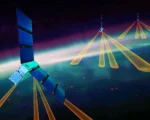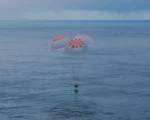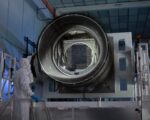On January 24, 2025, SpaceX successfully launched 23 Starlink satellites into orbit, marking its 11th Falcon 9 mission of the year. The rocket lifted off from Vandenberg Space Force Base at 9:07 a.m. EST, delivering its payload to low Earth orbit. Following stage separation, the Falcon 9’s first-stage booster executed a precise landing on the drone ship Of Course I Still Love You in the Pacific Ocean. This achievement marks the 401st successful recovery of an orbital-class booster, further solidifying SpaceX’s dominance in reusable rocket technology.
Falcon 9 Booster Achieves 23rd Flight
According to SpaceX, the booster supporting this mission completed its 23rd successful launch and landing, setting a new record for Falcon 9 reusability. Of its previous missions, 14 were dedicated to Starlink deployments. The rocket’s upper stage deployed the satellites approximately 64 minutes after liftoff, further advancing SpaceX’s efforts in cost-efficient spaceflight. This milestone underscores the company’s ongoing refinement of booster reuse, a crucial factor in reducing launch costs and increasing mission frequency.
Starlink’s Ever-Growing Satellite Constellation
With this latest deployment, the Starlink constellation continues its rapid expansion. This mission represents the seventh Starlink launch of 2025, pushing the total number of operational satellites beyond 6,900. Astrophysicist and satellite tracker Jonathan McDowell noted that SpaceX’s ongoing launches are enabling faster global coverage, bringing high-speed internet access to underserved regions worldwide.
Paving the Way for Future Missions
As SpaceX scales up its Starlink network, the company remains focused on increasing satellite capabilities and launch efficiency. Future missions are expected to incorporate advanced satellite models with enhanced connectivity and inter-satellite communication. With Falcon 9’s continued reusability improvements, SpaceX is paving the way for even more ambitious spaceflight endeavors, including upcoming crewed missions and deep-space exploration.


















